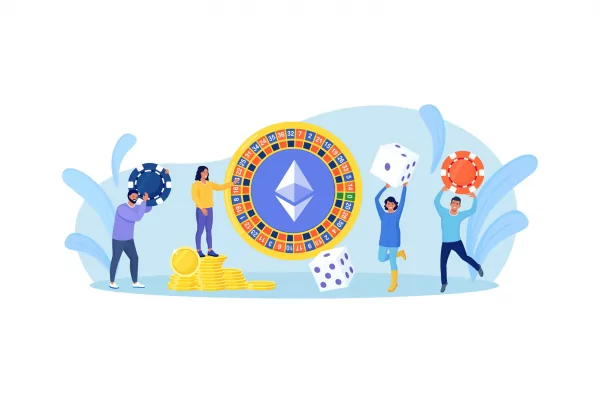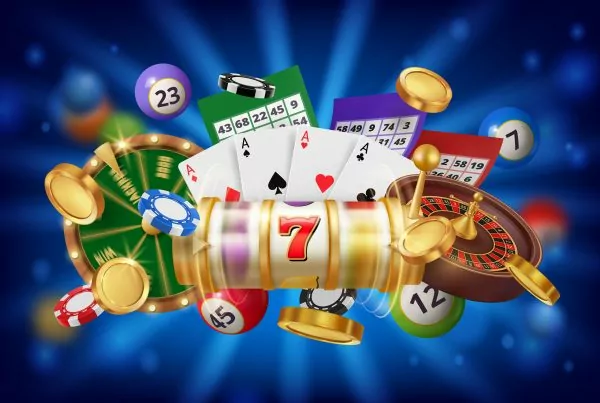
Cryptocurrency has emerged as a revolutionary force in the world of gaming, offering players new opportunities for seamless, secure, and decentralized in-game transactions. With the rise of blockchain technology, game developers and players alike are exploring the potential of cryptocurrencies to enhance the gaming experience and unlock new avenues for gameplay. In this guide, we’ll explore winning strategies for harnessing cryptocurrency for in-game transactions.
1. Seamless Payment Integration
Integrating cryptocurrency wallets directly into gaming platforms enables players to easily buy, sell, and trade in-game assets using digital currencies. By incorporating user-friendly wallet interfaces, game developers can streamline the transaction process and provide players with a seamless payment experience. This approach eliminates the need for third-party payment processors and reduces transaction fees, making it more convenient and cost-effective for players to participate in in-game economies.
Multi-Currency Support
Supporting a diverse range of cryptocurrencies within gaming ecosystems allows players to choose the digital currency that best suits their preferences and needs. Whether it’s Bitcoin, Ethereum, or alternative cryptocurrencies, offering multi-currency support ensures inclusivity and accessibility for players worldwide. Additionally, integrating stablecoins pegged to fiat currencies can provide stability and mitigate the volatility often associated with cryptocurrency transactions.
2. Secure Asset Ownership
Utilizing blockchain technology to record and authenticate in-game asset ownership ensures transparency, security, and immutability. By tokenizing game assets as non-fungible tokens (NFTs) on a blockchain, players have verifiable proof of ownership and can transfer or trade their assets with confidence. This decentralized approach eliminates the risk of fraud, duplication, or loss of in-game items, providing players with greater control over their virtual possessions.
Smart Contract Functionality
Smart contracts, programmable scripts executed on a blockchain, can automate and enforce the rules of in-game transactions, ensuring fairness and transparency. For example, smart contracts can facilitate peer-to-peer asset exchanges, escrow services, and revenue-sharing agreements among players and developers. By leveraging smart contract functionality, situs slot gacor game developers can create innovative gameplay mechanics and monetization models that empower players and enhance the gaming experience.
3. Player Incentives and Rewards
Incorporating cryptocurrency-based rewards and incentives incentivizes player engagement and participation in gaming ecosystems. Players can earn cryptocurrencies as rewards for completing in-game achievements, reaching milestones, or contributing to the community. These rewards can be used to purchase in-game items, unlock premium content, or even be withdrawn and exchanged for fiat currency. By integrating cryptocurrency-based rewards, game developers can create a self-sustaining ecosystem that encourages continued player involvement and loyalty.
Tokenized Ownership and Governance
Tokenizing in-game assets and currencies as tradable tokens enables players to actively participate in the governance and decision-making processes of gaming communities. By holding governance tokens, players can vote on proposals, influence game development priorities, and shape the direction of the gaming ecosystem. This decentralized governance model empowers players to have a stake in the success of the games they love and fosters a sense of ownership and belonging within the community.
4. Regulatory Compliance and Security
Navigating the regulatory landscape surrounding cryptocurrency and gaming requires careful consideration of legal requirements and compliance frameworks. Game developers must ensure that their platforms adhere to relevant regulations, such as anti-money laundering (AML) and know-your-customer (KYC) requirements, to mitigate legal and financial risks. Implementing robust compliance measures, such as identity verification and transaction monitoring, helps maintain regulatory compliance and safeguard against illicit activities within gaming ecosystems.
Cybersecurity Measures
Protecting players’ digital assets and personal information from cyber threats is paramount in cryptocurrency-based gaming environments. Implementing robust cybersecurity measures, such as encryption, multi-factor authentication, and secure network protocols, helps prevent unauthorized access, data breaches, and fraud. Additionally, conducting regular security audits and penetration testing can identify vulnerabilities and strengthen defenses against emerging cyber threats.
5. Community Engagement and Education
Fostering a vibrant and engaged community is essential for the success of cryptocurrency-based gaming platforms. Game developers should actively engage with players through forums, social media channels, and live events to solicit feedback, address concerns, and cultivate a sense of community ownership. Encouraging player collaboration, creativity, and contributions to the ecosystem fosters a supportive and inclusive gaming community.
Education and Awareness
Educating players about the benefits, risks, and mechanics of cryptocurrency transactions is crucial for promoting adoption and ensuring responsible participation. Game developers should provide players with educational resources, tutorials, and support channels to help them understand how to securely manage their digital assets and navigate the complexities of cryptocurrency-based gaming. By empowering players with knowledge and awareness, developers can foster trust, confidence, and long-term engagement in cryptocurrency-powered gaming environments.
Conclusion
Harnessing cryptocurrency for in-game transactions presents exciting opportunities to revolutionize the gaming industry and empower players with greater control over their virtual assets and experiences. By integrating seamless payment solutions, ensuring secure asset ownership, providing player incentives and rewards, maintaining regulatory compliance and security, and fostering community engagement and education, game developers can unlock the full potential of cryptocurrency-powered gaming ecosystems. As the adoption of cryptocurrency continues to grow, the future of gaming is poised for innovation, collaboration, and decentralization, paving the way for a new era of immersive and inclusive gaming experiences.



